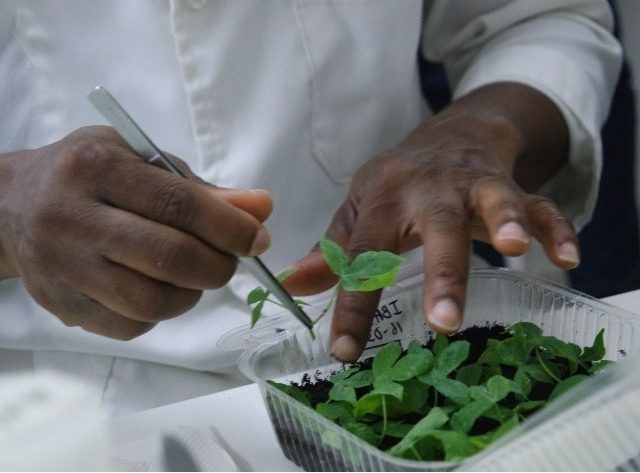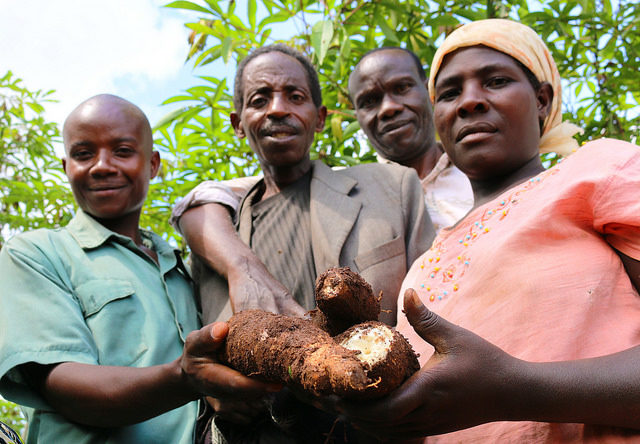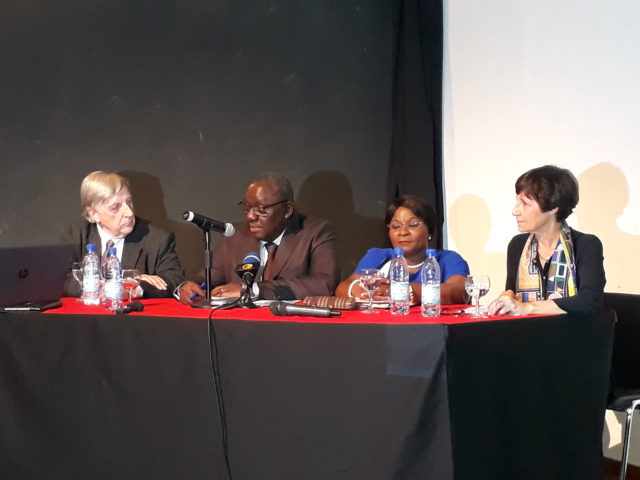Partners in the NEXTGEN Cassava Project and the CGIAR Research Program on Roots, Tubers and Bananas (RTB) were in Ibadan, Nigeria on 29-31 January to review the work already done in gender research and to discuss preliminary findings on gender roles in cassava production and selection of cassava variety preferences. These were based on results from pilot sites of 8 villages in Southwest and Southeast Nigeria.
Among the participants were IITA scientists from Ibadan and Cameroon and partners from Ghana, the National Root Crops Research Institute, Umudike, and Bowen University. The lessons learned will enable those implementing the Project to note what has worked well and what still needs to be improved, especially as they map implementation strategies for Phase II in 2015.
Dr Hale Tufan from Cornell University, Project Manager for the NEXTGEN Cassava Project, said during the workshop that Phase II would focus on balancing and promoting those variety characteristics most desirable and appealing to cassava farmers, men, women and the youth, as well as to processors.
“…Before we go back to the field,” she said, “we need to refine what has already been done and map strategies for including more stakeholders, such as breeders and food technicians. Phase II will be more field based and will center on deploying desirable traits in cassava varieties to farmers.” A trip to the field was also organized for the workshop participants.
Among other objectives, Phase II of the Project aims to:
- Develop a checklist to note the cassava varieties actually being cultivated on farmers’ fields.
- Describe more in-depth the morphological characteristics of these varieties on farmers’ fields.
- Involve food scientists and technicians in describing the products that can be derived from the varieties.
- Identify the ideal traits that farmers and processors prefer in cassava to promote breeding efforts to solve identified problems.
Original post published on the IITA website
For more information, please contact:
Andrea Gros, a.gros@cgiar.org
About IITA, www.iita.org
IITA is one of the world’s leading research partners in finding solutions for hunger, malnutrition, and poverty. Its award-winning research for development (R4D) approach addresses the development needs of tropical countries. IITA works with partners to enhance crop quality and productivity, reduce producer and consumer risks, and generate wealth from agriculture. IITA is a nonprofit organization founded in 1967 and governed by a Board of Trustees. IITA works on the following crops: cowpea, soybean, banana/plantain, yam, cassava, and maize. IITA is a member of CGIAR, a global agriculture research partnership for a food secure future.



